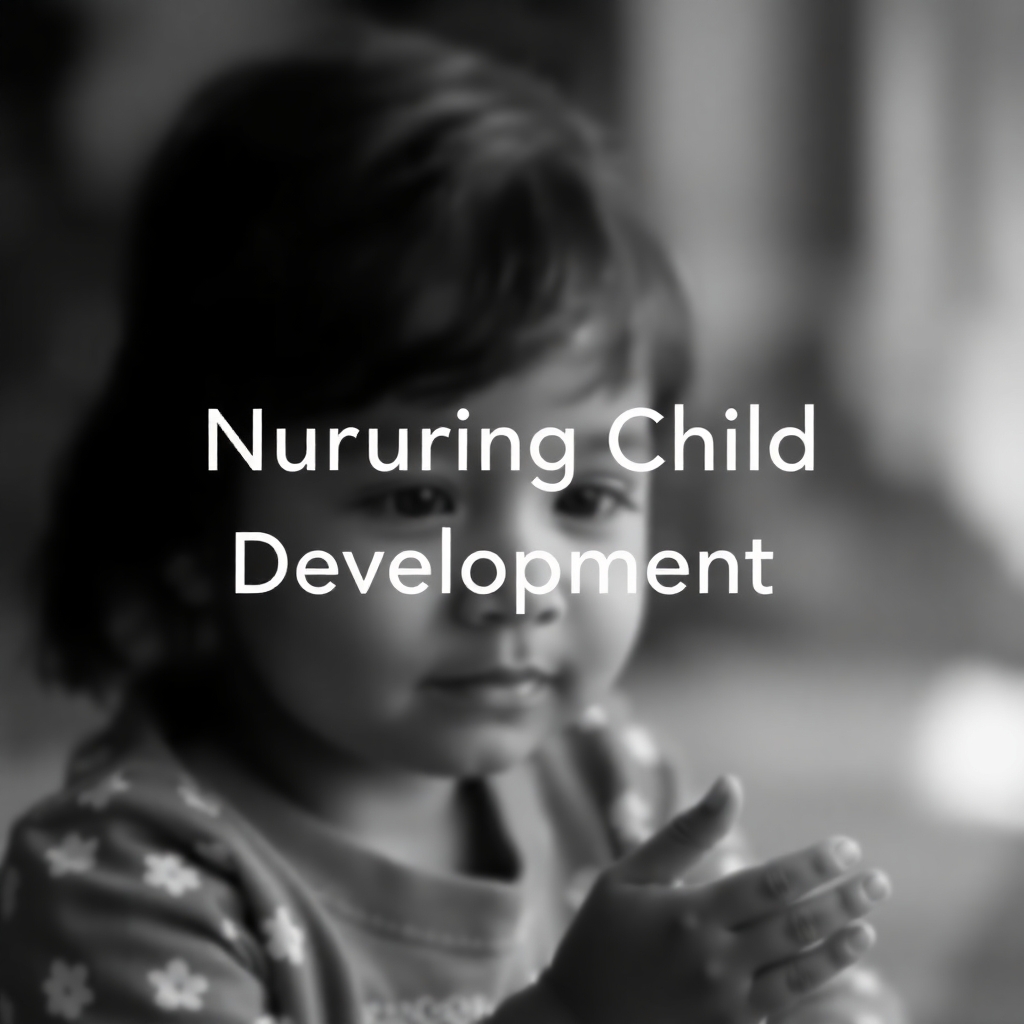Nurturing Child Development: The Evolving Landscape of Parenting

Parenting is an intricate journey that shapes a child’s development in a world that is constantly changing. Understanding various parenting styles and how they impact behavior is crucial for fostering positive outcomes. This article explores different approaches to parenting, emphasizing the importance of mental health, self-esteem, and evolving parenting goals, ultimately highlighting how these elements contribute to nurturing a child’s well-being and future.
What Are the Different Parenting Styles and Their Impact on Child Development?
Parenting styles vary widely, and each has a distinct impact on child development. Authoritarian parenting emphasizes strict rules and obedience, often leading to children who may struggle with self-control and autonomy. In contrast, permissive parenting allows greater freedom, potentially resulting in children who may have difficulty behaving in structured environments. Many parents may find themselves somewhere in between these extremes, striving to balance discipline and support. Gentle parenting, for instance, promotes emotional connection and understanding, fostering a nurturing environment that emphasizes communication and respect.
Behavior is significantly influenced by the parenting style employed by caregivers. Children raised in a warm and supportive environment tend to exhibit positive behavior, demonstrating higher self-esteem and resilience. Conversely, those subjected to helicopter parenting may exhibit anxiety and depend on their parents excessively. It’s essential for parents to evaluate their style regularly and adapt it as needed, ensuring they provide the necessary support while also allowing their children to develop independence. By prioritizing a nurturing approach, parents can significantly contribute to their child’s overall well-being and development.
Gentle parenting is a specific approach that emphasizes empathy, connection, and respect towards children. This style encourages parents to engage with their children on an emotional level, recognizing their feelings and addressing their needs with care. The benefits of gentle parenting include fostering a secure attachment, enhancing a child’s self-esteem, and promoting effective communication skills. Children raised in such environments often learn to express themselves healthily and develop strong emotional intelligence. It’s important to note that gentle parenting doesn’t mean a lack of discipline; rather, it focuses on guiding children through positive reinforcement rather than punishment.
How Does Parenting Style Affect Behavior?
The way parents interact with their children significantly shapes their behavior and personality traits. Authoritarian parenting, characterized by rigid rules and high expectations, can lead to compliance but may also foster rebellion or anxiety in children. Conversely, permissive parenting, which offers minimal boundaries, might cultivate creativity but can also result in poor self-discipline. Striking a balance between these extremes is crucial for promoting good behavior. Parents may consider adopting a blend of specific parenting techniques that encourage independence while also providing adequate guidance and support, allowing children to learn how to behave appropriately in various situations.
What Is Gentle Parenting and Its Benefits?
Gentle parenting is a compassionate approach that focuses on nurturing a child’s emotional needs. It encourages parents to communicate openly, validate their child’s feelings, and provide gentle guidance rather than harsh discipline. This style fosters strong parent-child relationships, which are essential for healthy emotional development. Children raised through gentle parenting often show improved self-regulation and social skills as they learn to navigate their emotions in a supportive environment. Additionally, this approach helps cultivate empathy and understanding, traits that are crucial for children’s overall well-being and future interpersonal relationships.
How Do Authoritarian and Permissive Parenting Differ?
Authoritarian and permissive parenting styles represent two ends of the parenting spectrum. Authoritarian parenting is characterized by high demands and low responsiveness, leading to children who often feel pressured to meet their parents’ expectations. This can result in a lack of self-esteem and increased anxiety. On the other hand, permissive parenting is marked by low demands and high responsiveness, allowing children significant freedom but sometimes at the expense of guidance. Striking a balance between these two styles can help parents foster an environment conducive to healthy child development, teaching children the importance of boundaries while also encouraging independence.
How Can Parents Foster Good Behavior in Their Children?

Fostering good behavior in children is an essential aspect of parenting that requires intentional strategies. Positive parenting techniques, such as modeling desired behaviors, can significantly influence a child’s actions. For instance, when parents demonstrate respect and kindness, their children are likely to emulate these traits. Additionally, offering clear, consistent expectations helps children understand what is acceptable behavior. Encouraging open communication allows children to express themselves while also learning to navigate social interactions, ultimately leading to better behavioral outcomes.
Using rewards effectively is another crucial technique for promoting good behavior in children. Acknowledging positive actions with praise or small incentives reinforces desirable behavior, making children more likely to repeat those actions. Parents may find it beneficial to use specific phrases like “good job” to affirm their child’s efforts, which can enhance their self-esteem and motivate them to continue behaving well. It’s essential, however, to ensure that rewards are balanced and not overused, as this can lead to entitlement, and children may begin to expect rewards for every positive behavior.
Parental warmth plays a vital role in fostering good behavior in children. When parents display warmth and affection, children feel secure and valued, which can lead to better emotional regulation and social skills. A warm parent-child relationship encourages open communication, allowing children to express their feelings and concerns. This connection is crucial in helping them understand the importance of good behavior, as they are more likely to strive to please parents who show them consistent love and support. Thus, creating a nurturing environment is foundational for promoting positive behavior.
What Are Positive Parenting Techniques?
Positive parenting techniques are strategies designed to promote healthy child development while fostering good behavior. These techniques emphasize encouragement, communication, and understanding rather than punishment or criticism. For example, parents can utilize timeouts as a constructive tool, allowing children to reflect on their actions in a calm environment rather than resorting to harsh discipline. Consistent routines also play a vital role in positive parenting, helping children feel secure and understand expectations. Parents may also strive to engage in active listening, ensuring that their child’s feelings and opinions are acknowledged and valued, which can enhance their self-esteem and emotional well-being.
How to Use Rewards Effectively?
Using rewards effectively requires a thoughtful approach that balances motivation with realistic expectations. Parents may consider implementing a reward system that acknowledges specific behaviors, helping children understand what actions are desirable. This could involve using a sticker chart for younger children, where they receive a sticker for each instance of good behavior, leading to a reward after a certain number of stickers are collected. The key is to ensure that rewards are meaningful and not overly frequent, as this helps children learn the intrinsic value of good behavior rather than simply focusing on external rewards.
Why Is Parental Warmth Important?
Parental warmth is paramount in nurturing a child’s emotional and psychological well-being. When parents consistently show affection, support, and understanding, children are more likely to develop secure attachments and healthy self-esteem. This emotional safety net encourages children to explore, learn, and engage with their environment. Furthermore, warm relationships provide a foundation for effective communication, enabling children to express their feelings and concerns openly. Research indicates that children raised in nurturing environments are more likely to exhibit positive behaviors and develop strong social skills, ultimately leading to better life outcomes.
What Role Does Mental Health Play in Parenting?
Mental health significantly influences parenting effectiveness and overall child development. Parents who maintain their mental well-being are better equipped to provide the emotional support and guidance their children need. On the other hand, stress and mental health struggles can lead to inconsistent parenting practices, which may negatively impact a child’s behavior and emotional health. Therefore, it is crucial for parents to prioritize their mental health, seeking help when necessary, to create a stable and nurturing environment for their children. This ensures that they can engage in positive parenting practices that promote healthy child development.
To maintain their mental health, parents can adopt several strategies, such as practicing self-care, setting realistic expectations, and seeking social support. Engaging in regular physical activity, pursuing hobbies, and maintaining a healthy work-life balance are all essential components of good mental health. Additionally, fostering connections with friends and family can provide emotional support, allowing parents to share their experiences and challenges. By prioritizing their mental health, parents can enhance their effectiveness in nurturing their child’s development and overall well-being.
Recognizing the signs of stress in parenting is crucial for maintaining healthy family dynamics. Common indicators of stress may include irritability, fatigue, and difficulty concentrating. Parents may also notice changes in their behavior, such as becoming overly critical or disengaged. It’s important for parents to reflect on their mental health regularly and identify when they may need to seek help or make lifestyle changes. Addressing stress proactively not only supports the parent but also creates a more nurturing environment for children, allowing them to thrive emotionally and socially.
How Can Parents Maintain Their Mental Health?
Maintaining mental health as a parent is vital for fostering a positive family environment. Parents can prioritize their mental well-being through various strategies, including setting aside time for self-care and relaxation. Engaging in hobbies, exercising regularly, and ensuring adequate sleep can significantly enhance mental health. Furthermore, parents should seek social connections, sharing their experiences with friends or family members who can offer support. By actively managing stress and prioritizing their mental health, parents create a more stable environment that benefits both themselves and their children.
What Are the Signs of Stress in Parenting?
Identifying the signs of stress in parenting is essential for maintaining both parental and child well-being. Common indicators include increased irritability, mood swings, and feelings of being overwhelmed. Parents may also experience difficulty concentrating or making decisions, which can lead to frustration and conflict within the family. Recognizing these signs early allows parents to take proactive steps to manage their stress, whether through self-care practices, seeking professional help, or engaging in open communication with their children about their feelings. Addressing stress is crucial for fostering a nurturing environment where children can thrive emotionally and socially.
How Does a Parent’s Mental Health Affect Their Child’s Development?

A parent’s mental health plays a significant role in shaping their child’s emotional and psychological development. When parents are mentally healthy, they can provide the warmth, support, and guidance that children need to thrive. Conversely, parents experiencing mental health challenges may struggle to respond to their child’s needs effectively, potentially leading to behavioral issues and emotional difficulties in their children. Research indicates that children of parents with untreated mental health issues may be at a higher risk of developing anxiety, depression, and other mental health disorders. Therefore, prioritizing mental health is essential not only for the parent but also for the child’s overall well-being and development.
How to Encourage Self-Esteem in Children?
Encouraging self-esteem in children is a fundamental aspect of effective parenting. Parents can employ several strategies to help foster a positive self-image, such as providing specific praise for accomplishments. Instead of vague affirmations, parents might say, “You did a great job solving that puzzle!” This approach helps children recognize their abilities and feel valued. Additionally, allowing children to make choices and take on challenges fosters autonomy, reinforcing the belief that they are capable and competent individuals.
Affirming a child’s abilities is crucial in nurturing their self-esteem. Parents can engage in conversations that highlight their child’s strengths and achievements, encouraging them to take pride in their unique talents. Furthermore, creating a supportive environment where children feel safe to express themselves and explore new interests is vital. This not only boosts their confidence but also fosters a love for learning and personal growth, essential traits for their future success.
Autonomy is an important aspect of a child’s well-being, contributing significantly to their self-esteem. Allowing children to make age-appropriate decisions fosters independence and helps them develop critical thinking skills. When children feel they have a say in their lives, it enhances their sense of control and confidence. Parents can encourage autonomy by providing choices in daily activities, promoting problem-solving skills, and respecting their child’s opinions. This nurturing approach not only boosts their self-esteem but also prepares them to navigate challenges confidently as they grow.
What Are Effective Parenting Practices for Boosting Self-Esteem?
Effective parenting practices for boosting self-esteem involve a combination of encouragement, support, and constructive feedback. One essential practice is to celebrate achievements, big or small, reinforcing the idea that effort leads to success. Parents should also focus on fostering a growth mindset, helping children understand that mistakes are opportunities for learning rather than failures. This perspective encourages resilience and a willingness to tackle challenges. Moreover, open communication is vital; when children feel heard and valued, their self-esteem naturally flourishes, creating a strong foundation for their confidence as they grow.
How Can Parents Affirm Their Child’s Abilities?
Affirming a child’s abilities is crucial for nurturing their self-esteem and confidence. Parents can achieve this by offering specific praise that highlights their child’s efforts and talents. Instead of general comments, parents might say, “I love how you worked so hard on that project,” which emphasizes the value of their effort. Furthermore, engaging children in discussions about their accomplishments helps them internalize their strengths and feel a sense of pride. Providing opportunities for children to showcase their skills, whether through hobbies or school projects, further reinforces their abilities and encourages them to pursue their passions.
Why Is Autonomy Important for a Child’s Well-being?
Autonomy is a critical component of a child’s well-being, fostering independence and self-confidence. When children are given opportunities to make choices and take responsibility for their actions, they develop a sense of control over their lives. This independence encourages critical thinking and problem-solving skills, essential traits for navigating the complexities of adulthood. Moreover, autonomy supports emotional development, as children learn to express their opinions and stand up for themselves. By encouraging autonomy in a supportive environment, parents equip their children with the tools needed to thrive as confident, capable individuals.
How Do Parenting Goals Change as Children Grow?

Parenting goals evolve significantly as children progress through different developmental stages. For toddlers, parents may focus on fostering basic skills, establishing routines, and promoting good behavior. As children enter school, the emphasis may shift to academic support and socialization, encouraging them to make friends and develop interpersonal skills. Many parents find that their goals adapt to their child’s changing needs, striving to provide the right balance of guidance and independence as they mature, ultimately preparing them for the challenges of adolescence and adulthood.
As children transition into adulthood, parents’ goals often shift from direct involvement to supporting their independence. Parents may emphasize the importance of responsibility, self-sufficiency, and decision-making skills, encouraging their children to pursue their passions and navigate life’s challenges on their own. This transition can be difficult for parents who may feel a strong desire to protect their children, but fostering independence is crucial for their child’s long-term success and well-being. Ultimately, adapting parenting goals throughout various stages allows parents to nurture their child’s growth while also preparing them for the realities of adult life.
In the U.S., common goals for child-rearing often revolve around fostering independence, self-reliance, and emotional resilience. Parents strive to instill values such as respect, empathy, and responsibility, helping children develop strong moral compasses. Additionally, many parents prioritize educational achievement and encourage their children to pursue higher education and career aspirations. As societal expectations evolve, so do parenting goals, with an increasing focus on mental health awareness and emotional well-being, ensuring that children are equipped to thrive in a rapidly changing world.
What Goals Do Parents Set for Their Toddler?
For toddlers, parents often set foundational goals that focus on nurturing basic skills and establishing routines. Encouraging language development, social skills, and early problem-solving abilities are crucial during this stage. Many parents may prioritize creating a safe and structured environment that allows toddlers to explore while learning appropriate behaviors. Additionally, fostering emotional intelligence by teaching toddlers to identify and express their feelings can significantly contribute to their overall development. These early goals lay the groundwork for future growth, enabling children to transition smoothly into subsequent developmental stages.
How Do Parents’ Goals Evolve into Adulthood?
As children grow into adolescence and eventually adulthood, parents’ goals evolve to reflect their child’s increasing independence and responsibility. Initially focused on providing structure and guidance, parents may shift their emphasis toward fostering critical thinking and decision-making skills. Encouraging self-reliance becomes a primary goal, as parents want their children to navigate life’s challenges effectively. This transition requires parents to balance support with the necessity of allowing their children to make their own choices, ultimately preparing them for adult responsibilities and relationships.
What Are Common Goals for Child-Rearing in the U.S.?
Common goals for child-rearing in the U.S. often encompass fostering independence, academic achievement, and emotional resilience. Parents strive to instill values such as respect, responsibility, and empathy, guiding their children to become well-rounded individuals. Encouraging open communication and emotional expression is increasingly recognized as vital for mental health and well-being. Furthermore, many parents prioritize higher education and career readiness, preparing their children for successful futures. As societal norms shift, the focus on mental health awareness and emotional support has become an integral part of modern parenting goals, ensuring children are equipped to thrive in a dynamic world.
How Can Parenting Help Shape a Child’s Future?
Parenting plays a pivotal role in shaping a child’s future by instilling essential traits and values. The behaviors and attitudes parents model significantly influence their children’s development. Traits such as empathy, resilience, and responsibility are often learned through observation and interaction with parents. Effective parenting practices, including encouragement and positive reinforcement, help children internalize these values, equipping them with the skills needed to navigate life’s challenges. Ultimately, the foundation laid in childhood has a lasting impact on a child’s emotional, social, and academic success.
Parenting also influences the life skills children acquire, which are crucial for their future independence and success. By providing opportunities for problem-solving and decision-making, parents help children develop critical thinking skills. Encouraging responsibilities, such as chores or managing allowances, fosters self-discipline and time management. These skills are vital as children transition into adulthood, impacting their ability to thrive in both personal and professional settings. Through intentional parenting practices, parents can ensure their children are well-prepared to face the complexities of life.
Finally, the legacy parents want to leave for their children often shapes their parenting decisions. Many parents aspire to raise children who are not only successful but also compassionate and socially responsible. By modeling kindness and encouraging community involvement, parents instill a sense of duty and connection to others in their children. This legacy of values and priorities influences the next generation, ensuring that the lessons learned in childhood resonate throughout their lives. Ultimately, effective parenting helps shape not only individual futures but also the broader community as children grow into responsible citizens.

